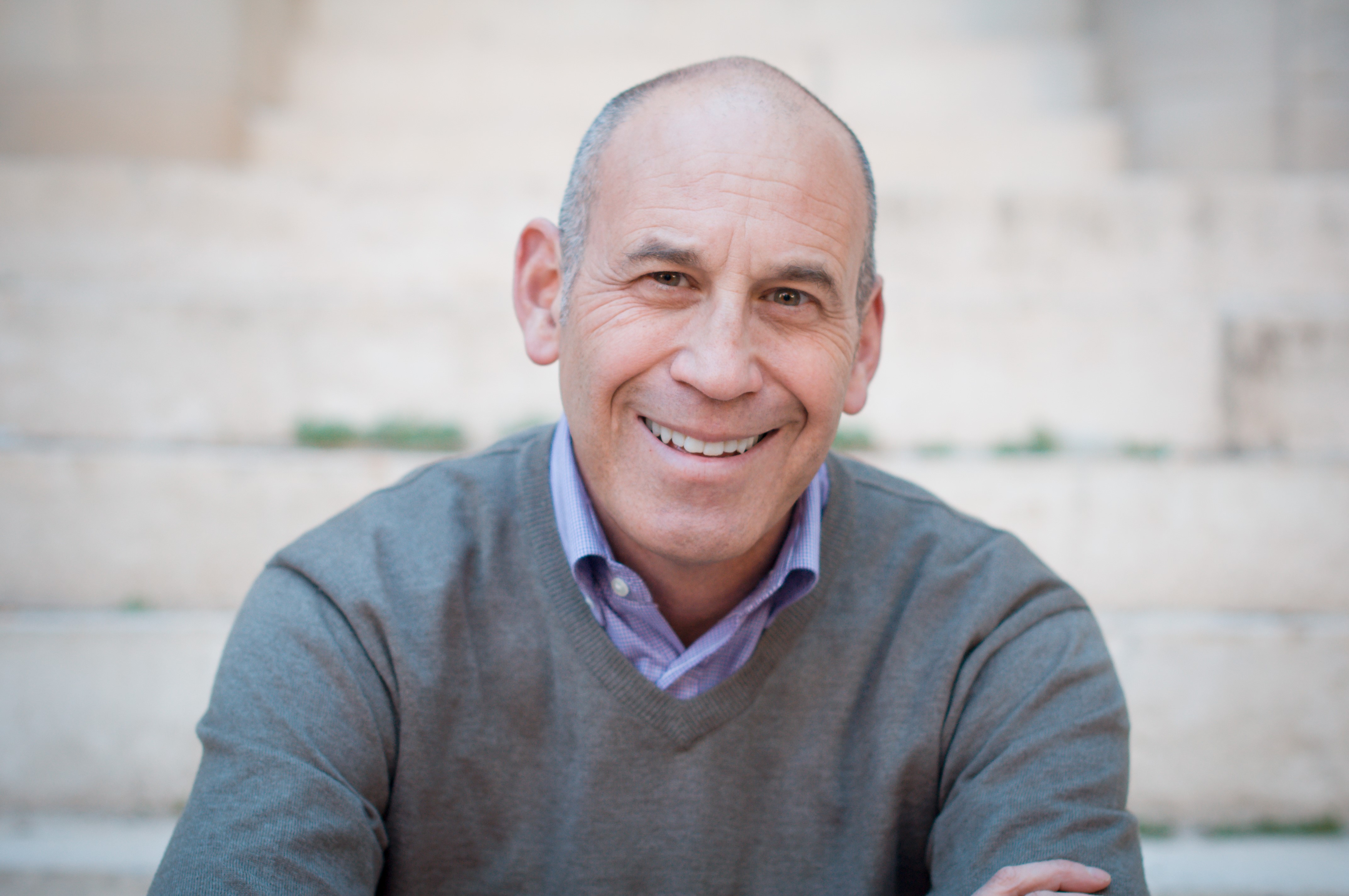Editor Note: V’zot HaB’racha will be read in congregations during readings for Simchat Torah on 9/28/2021.
This week’s Torah portion, V’zot HaB’racha, recounts the final minutes of Moses’ life. Moses has led the people from slavery to freedom and now, in his last moments, he will offer blessings to the assembled Israelite nation. After these blessings, Moses ascends Mount Nebo and the Almighty shows him all of Israel, the land he will not enter. God tells him, “This is the land of which I swore to Abraham, Isaac, and Jacob…” (Deuteronomy 34:4). And Moses takes one last glimpse of the land before dying on the summit of Pisgah. God buries him in an unknown place.
The Torah recounts this episode in a somewhat detached, matter-of-fact way, and this makes Moses’ death even more painful. After the 40 years of wandering and shepherding the nation, Moses is replaced by Joshua, who leads the people into the Promised Land.
A few years ago, my husband, Rabbi Donald Goor, and I drove from Jerusalem to Jordan. After a tour of Amman, we visited the ancient Roman city of Jerash. Then we went to Madaba and Mount Nebo, recognized as the traditional spot where Moses died. Standing on Mount Nebo, we viewed the landscape the Torah tells us Moses beheld -- and it is glorious. On that warm, clear day, I could see the sweeping vistas from the heights of Mount Nebo across the plain to the ocean. Beyond the green, lush Rift Valley, I could see the glistening skyscrapers of Tel Aviv. Having the privilege to see and be a part of a modern Israel Moses could hardly have imagined made me weep with awe.
When we come to the end of this Torah portion, we once again encounter that white space, that liminal place between the Torah portions of which I wrote when we began our journey through Deuteronomy. Before we arrive at this wordless place, we read the final verses of the Torah:
Never again did there arise in Israel a prophet like Moses—whom God singled out, face to face, for the various signs and portents that God sent him to display in the land of Egypt, against Pharaoh and all his courtiers and his whole country, and for all the great might and awesome power that Moses displayed before all Israel (Deuteronomy 34: 10-12).
After reading these final verses, we return again to Book of Genesis, beginning with the creation story. But first, I encourage you to take a breath and contemplate that final white space.
We are no longer in the Book of Deuteronomy, and we have not yet returned to the Book of Genesis. This is the place of “perhaps,” a moment of questioning. We, like the ancient Israelites, stand on the boundary between the known past and the unknown future, a small white space of uncertainty and transition. For me, this moment of ending and beginning is a time of joy mixed with apprehension, celebration intermingled with the ambiguity of what I might discover as we start again. And as much as we try to understand the words, verses, mysteries, lessons, and midrashim of Torah, the sea of knowledge is deep and daunting. I am grateful to my teachers who have always encouraged me to throw caution aside and dive into the waters of learning. It is wonderful and frightening at the same time to discover what you do not know and relearn what you thought you knew. For me, this is the essence of Torah study, the essence of a religious life.
Theologian and philosopher John Caputo refers to this as the “impossibly possible” future in his book, On Religion:
We look towards some imagined or real horizon, but we will never get there….
The religious sense of life has to do with exposing oneself to the radical uncertainty and the open-endedness of life, with what we are calling the absolute future, which is meaning-giving, salt-giving, risk-taking. The absolute future is a risky business, which is why faith, hope, and love have to kick in. Our hearts are restless… astir with the possibility of renewal and rebirth…
Thank you for joining me in this journey through the final book of the Torah, and may we all walk towards our horizons filled with joy, learning, and a bit of uncertainty, as we say:
Chazak chazak v’nitchazek! Be strong, be strong and we will be strengthened.
Explore Jewish Life and Get Inspired
Subscribe for Emails


